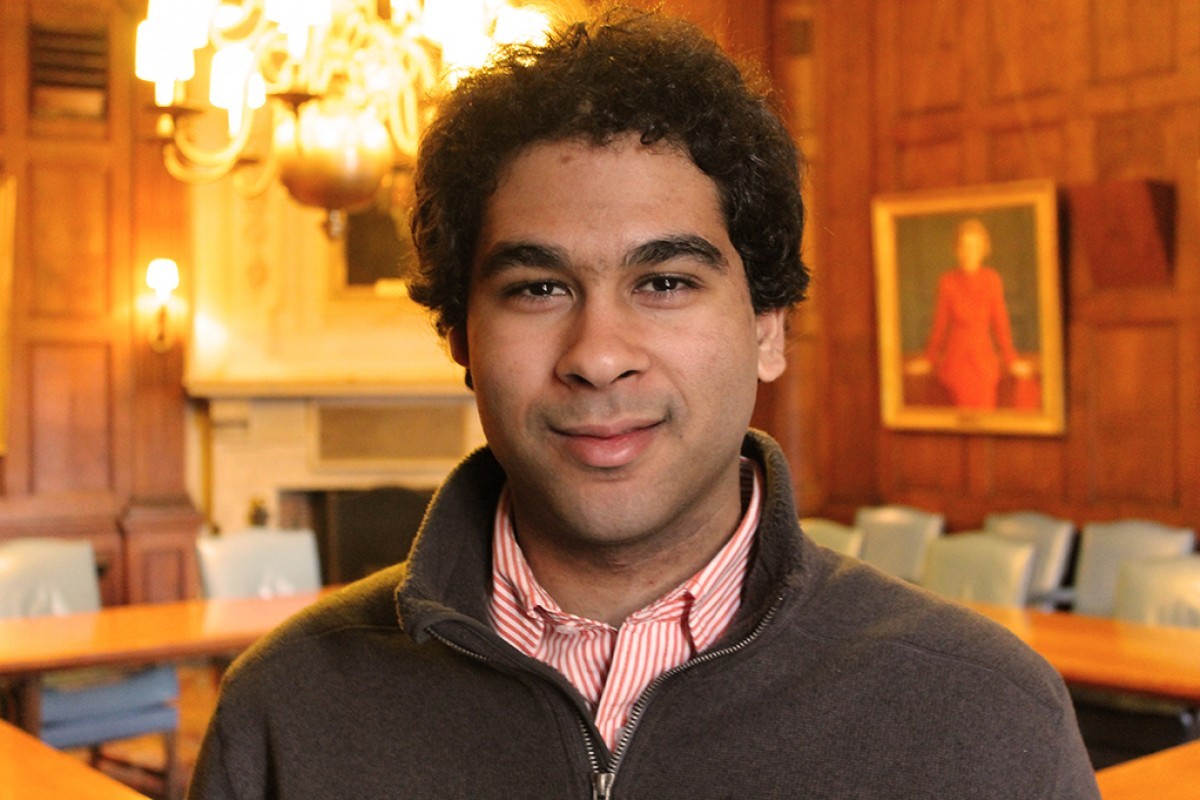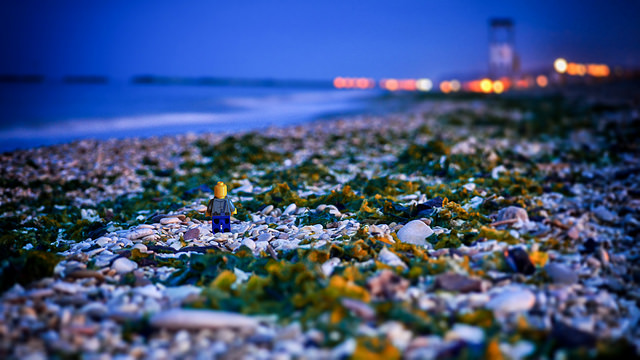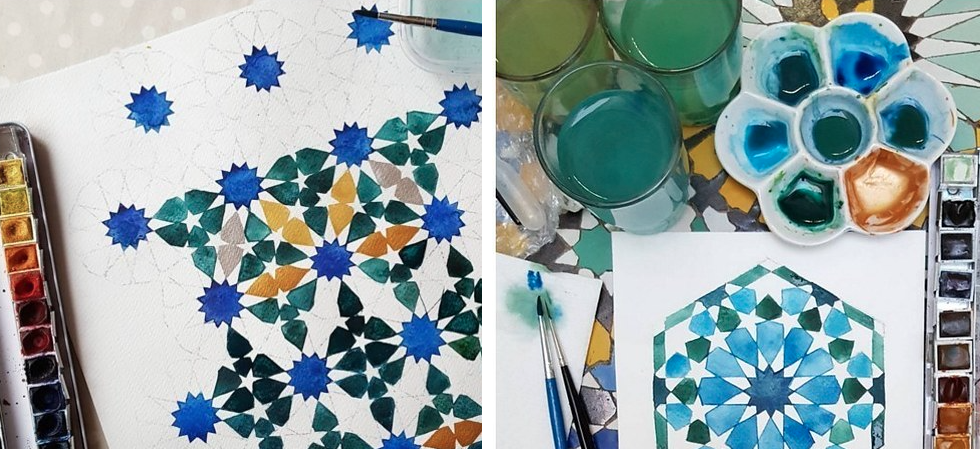The first creative writing piece I workshopped in undergrad told the story of a Pakistani engineering student who rebuilds her father’s mystical gulab jamun machine and saves Manhattan from a gang of neo-Nazis and their patrons on Wall Street. It was narrated by her friend, an insecure Muslim Iranian Dominican with a crush on Robert Downey, Jr.
“I’m confused,” one of my peers announced. “Is she Latina or Arab?”
“It doesn’t make sense,” another piggybacked. “And this word in the first line? I don’t know Arabic. I don’t wanna have to Google something.”
“You don’t have to know what it means to understand what he’s saying,” my professor countered. With a small smile in my direction, he suggested we consider the possibility that the narrator occupies multiple identities, an example of which was sitting in the room.
“I think it’s pretty cool,” someone agreed.
I remained mute per the workshop rules but laughed bitterly. I wasn’t going to spoon-feed my identities, and their projections into the lives of my protagonists, with easy explanation. I couldn’t simplify them with translation or present them on the literary billboard of rote exposition. For me, identity is not a statement of fact. It’s an experience.
I am a Muslim Dominican Pakistani American.
Do those words mean anything? They’re letters on a screen.
My parents arrived in America in the sixties. Mom was raised in Manhattan, Dad in Maryland. I grew up in white suburbia. K-12, I scarcely met any peers, teachers, or administrators of color, let alone Muslim. I was fluent in Spanish when I was young but my parents have limited knowledge of each other’s native tongue, so English became our lingua franca. At four, I told Mom I wanted to play with my white friend instead of my Chinese friend; my white friend was “vanilla.”
“What do you identify with more,” a friend once asked, “Dominican or Pakistani?”
“White American,” I replied.
But I’m not sure that’s true. I don’t know Urdu or Spanish very well, and my hometown’s ethnic homogeneity formed me, but it also showed me I was not like my neighbors. I consider myself a Muslim first, but to me Islam manifests through cultural avenues. And it’s easy to feel I don’t belong to the cultures of Pakistan, the DR, or America.
So I tell myself I’m a colonized subject, a product of de facto segregation and the failure—or success?—of American society.
This is the easy answer.
To be honest, I don’t often think about what it means to be whatever it is I am. The question confuses me. My Pakistani ancestors were once Pashtun warriors, who were once Jewish tribesmen crossing premodern Afghanistan into India. My Dominican ancestors were once African slaves, Spanish conquistadors, Italian-American soldiers, German immigrants, and Corsican rebels who inspired the American Revolution.
I don’t think about what it means but how it feels. I do so in story.
Pakistan evokes the taste of my grandmother’s Hyderabadi biryani and the image of my grandfather’s blueprints for the perfect gulab jamun machine. He and my grandmother lived through the Partition and fifty years of marriage, during which he patented several inventions. The DR evokes family memories of the grandfather I never met feeding pigeons from his apartment window in Washington Heights and my grandmother’s smile. I taste Mom’s sancocho, a soup defined by the inclusion of almost every possible ingredient. I think of my aunt, who protested the dictator Trujillo until my family, fearing repercussions, migrated to New York.
I begin to realize pieces of myself. I see my grandfather’s inventions during Pakistan’s unending tumult and wonder whether I’ve pursued engineering as a result. I see my family’s struggle with the Trujillato and my aunt’s teenage dissidence, and I think of Mom warning me not to talk publicly about U.S. policy.
I have cousins who know more Urdu than I do, but they hardly know Tilism-e-Hoshruba and mistake the cover of Edward Said’s Orientalism for child pornography. I have cousins who know more Spanish than I do but don’t talk about the residues of Spanish colonialism or the U.S. Dollar Policy that brought my Italian-American great-grandfather to the DR as a U.S. soldier in 1917.
But those are theories and facts, not experiences. My family and I are built of the same memories and the same histories. We are Dominican, we are Pakistani, we are American, we are Muslim, each in our own ways.
***
The next semester, I workshopped a story about Muslim space travelers from a colonized planet of mixed race. Again I encountered the same reactions. Again the same professor advised my peers to keep an open mind. Again some of them fetishized the protagonists’ identities.
I workshopped the same piece at a Yale science fiction conference. No one questioned the characters’ amalgam of race and religion. Science fiction readers were more easily able to grasp experiences beyond their comfort zone. They took it as a given that Pakistani Dominican Muslims could be a thing. It wasn’t confusing or cool. It simply was.
I am an American Pakistani Dominican Muslim.
Which word goes first? What order do I use? I’d rather not legitimize these questions with answers. I’d rather show you the stories behind the words.
Writing is an act of showing, an act of experience. It’s an intrusive one, for it may throw your balance. It reaches beyond the page and protests the conditions from which you’ve arrived. But it’s beautiful also, and cathartic.
If stories aren’t doing that, they’re not doing anything. They’re only letters on a screen.
[separator type=”thin”]
Haris A. Durrani (@hdernity) is Co-Founder of The Muslim Protagonist Symposium at Columbia University, where he is an Egleston Scholar. His published fiction, memoirs, and essays explore personal narratives arising at the nexus of law, technology, and disenfranchised identities, particularly in Latino and post-9/11 contexts. He is an Applied Physics Major at Columbia’s School of Engineering and Applied Science and a Middle Eastern, South Asian, and African Studies Minor.
Photo Credit: Anna Espinola from The Eye at Columbia




















1 Comment